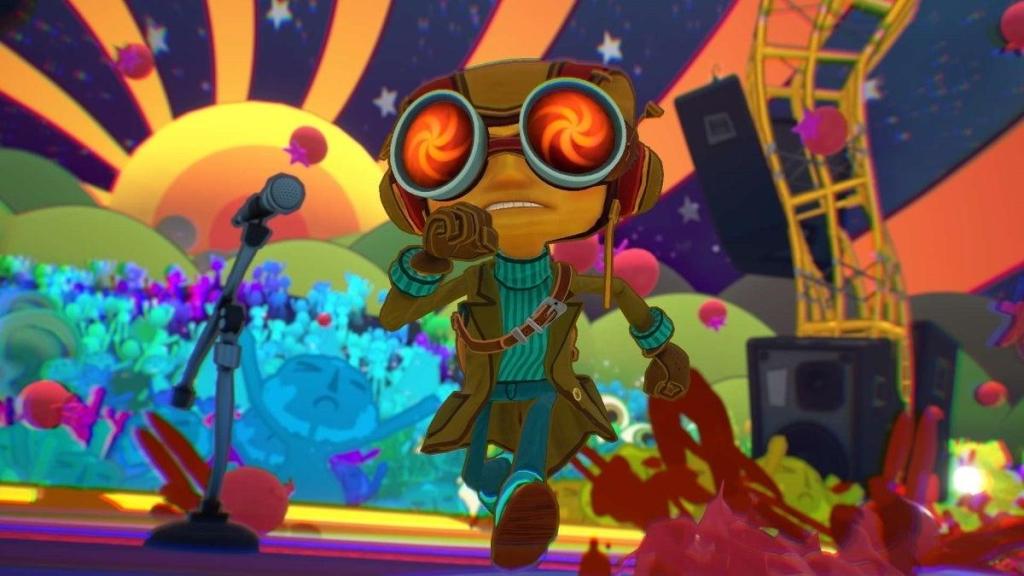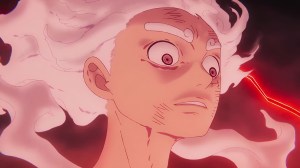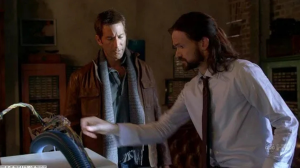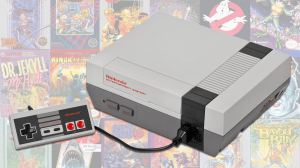When first booting up on Psychonauts 2, a disclaimer of sorts greets players. Such screens aren’t uncommon when playing video games. Plenty of games have warnings about strobing lights or similarities to real-life people and events only being coincidental. Psychonauts 2‘s is different. It isn’t a legal liability clause but a mental health advisory, warning that the game deals with issues like addiction and PTSD that may be upsetting to some folks. Some may gloss over this screen with a shrug or even dismiss it as an increasingly common content warning that may not be relevant to them. As ComicBook.com sets about choosing releases to highlight for its annual celebration of the best games of the year, that mental health advisory is emblematic of why Psychonauts 2 is a part of that group, representing the amount of care and empathy put towards exploring these subjects entertainingly.
Videos by ComicBook.com
The original Psychonauts, first released in 2005, was the debut release from Double Fine Productions. It gained a cult following for its artistic style, level designs, and writing by Erik Wolpaw and director Tim Schaefer, bringing the game’s quirky characters to life. More than 15 years later, Schaefer and company went beyond quirk to add depth and understanding to what makes many of Psychonauts 2‘s characters tick.
Psychonauts 2 is hardly the first game to touch on such subjects. However, those mental issues are often used as cheap set dressing to give weight to an otherwise unconcerned game. Maybe it’s detached from the core gameplay, or perhaps a writer thought it’d be ironic to ascribe PTSD to the protagonist of a game that’s mostly 8 hours of ultraviolence. Or it could be that a character’s sense of identity and self is fodder for a post-modern twist that will leave players agape at the writers’ cleverness.

There isn’t anything wrong with a good twist, and Psychonauts 2 has plenty itself, but those aren’t the point of the game. The issues aren’t the set dressing; they’re the set. Double Fine builds entire levels around expressing how it feels to struggle with a gambling addiction or anxiety. The tone remains lighthearted as Double Fine’s knack for level design transforms these conditions into something that those without them can easily digest and understand, like being trapped in a high-stakes casino or being forced into a televised cooking competition. Yet, the subjects are never on the receiving end of the game’s jokes. Players are encouraged to understand and empathize as they traverse these levels with their suite of psychic powers.
None of that comes at the expense of the game being a compelling platforming adventure. Each mind that Raz enters presents unique challenges, from racing against the clock in the cooking show example to doing your best to navigate a city while balancing atop a giant bowling ball in another. It’s all lovingly crafted, infused with more creative energy than some franchises have displayed in their entire existence. These ideas then are realized with Double Fine’s usual brilliant artistic vision, which looks something akin to a Laika Studios stop-motion film (excuse me while I salivate at the thought of Laika adapting Psychonauts to the big screen).
Trying to make a game that’s both engaging and meaningful can be a hard path to tread. Too often, studios fall too far to one side or the other, or perhaps worse, miss the mark just enough that it becomes awkward or embarrassing. Psychonauts 2 makes it look easy, marrying meaning and playfulness with aplomb, making it an easy choice for one of this year’s best games.








